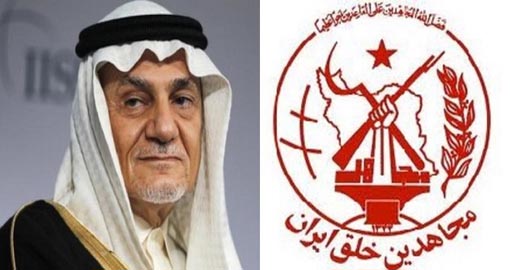Reacting to a recent barrage of anti-Iranian remarks by Saudi Foreign Minister Adel al-Jubeir, the Iranian Foreign Ministr y on Saturday lambasted the Saudi kingdom, calling it “the founding father of Daesh and al Qaedeh.”
y on Saturday lambasted the Saudi kingdom, calling it “the founding father of Daesh and al Qaedeh.”
During a lecture on terrorism organized by the Belgian Ministry of Foreign Affairs in Brussels and hosted by Egmont Research Center, Saudi Foreign Minister Adel al-Jubeir had accused Tehran of expansionist policies and “harboring” terrorism.
The acid comments were rejected by Iranian Foreign Ministry spokesman Bahram Qasemi as “absurd, unfounded, and repetitious.”
“Adel al-Jubeir, who is these days desperately obsessed with smudging the footprints of the interventions of Saudi officials in numerous terrorist attacks over the past decades, thinks can deflect the public opinion of the world from endless disgraces of his country as the founding father of Daesh and al Qaeda through propaganda,” Qassemi stated in a statement carried by the official website of the Iranian Foreign Ministry.
Iran and Saudi Arabia have been supporting opposing sides in regional developments in the Middle East region, particularly in Syria.
Saudi Arabia claims Tehran launches proxy wars in the Middle East to widen its sphere of influence.
Ironically, al-Jubeir’s comments come days after Washington published 28 pages of a congressional report on the September 11 terrorist attacks, part of which had hinted at the Saudi government’s involvement in the attack
“While in the United States, some of the September 11 hijackers were in contact with, and received support or assistance from, individuals who may be connected to the Saudi Government,” reads part of the report released on July 15, according to Press TV.
Referring to the report, Qasemi pointed out, “Of course this is understandable that the Saudi foreign minister has been through tough days just before the confidential September 11 report and await even tougher days ahead.”
“There is no doubt that the consequences of such important information about the resources of a country which shelters terrorism will not escape the public opinion of the world and of nations which fell victim to terrorism after the September 11,” the spokesman remarked.
Key here is that Saudis’ regional mudslinging runs counter to what they do in practice.
On July 9, Prince Turki al-Faisal, Saudi Arabia’s former spy chief, attended an annual meeting of the MKO terrorist group in Paris where he pledged backing and wished for the collapse of Iran.
For years, the group has committed acts of terrorism against Iran and the Saudi link simply means they have been feeding them financially.
Hossein Mousavian, the former Iranian diplomat and current researcher at Princeton University, wrote an article on July 21 in the Huffington Post saying “Riyadh’s now open alliance with the MEK only solidifies its position as the sponsor of yet another extremist group…”
Also, in his recent article published in the Guardian, Mousavian said, “It has long been evident to the global community that Saudi Arabia is a benefactors of Islamist militant groups, including likely the group that evolved into ISIS.”
To support his stance, the Iranian diplomat quoted U.S. Secretary of State Hillary Clinton as having stated at the Brookings Institution last year that, “Much of the extremism in the world today is the direct result of policies and funding undertaken by the Saudi government and individuals.”
Likewise, last year German Vice Chancellor Sigmar Gabriel called on Saudi Arabia to stop financing Wahhabis.
“We have to make clear to the Saudis that the time of looking away is over,” Gabriel had told Bild am Sonntag newspaper.
The German official added, “Wahhabi mosques all over the world are financed by Saudi Arabia. Many Islamists who are a threat to public safety come from these communities in Germany.”
With this background, it seems Saudis are pulling the wool over outsiders’ eyes, accusing others of backing terrorism cunningly to avoid being accused of terrorism!

